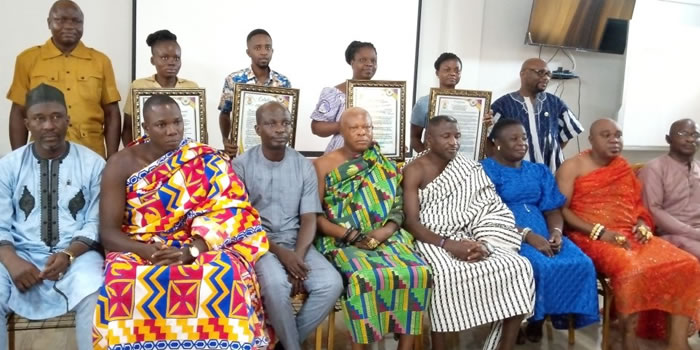Adverts
HEALTH
Take COVID-19 jabs for herd immunity-Ketu South residents urged
Mr. David Agbokpe, Municipal Director of Health Services has urged residents of Ketu South to take COVID-19 vaccines to attain population immunity.

Date Created : 2/19/2024 12:00:00 AM : Story Author : Ewoenam Kpodo/Ghanadistricts.com
He said there was a high COVID-19 vaccine hesitancy in the Municipality disclosing that from March, 2021 to December 30, 2023, those fully vaccinated against the disease represented 32.4 percent, which was far below the World Health Organisation”s target population of 149,619 representing 72 percent, a total of 48,452 people (32.4 percent) were fully vaccinated with 61, 891 (41.4 percent) taking at least one dose.
Mr. Agbokpe made the call during the Directorate’s 2023 programme of work review held at Aflao, saying that, though the disease was no longer a global health emergency, there was the need to get sufficient percentage of the population vaccinated against the contagious disease to reduce the likelihood of infection for individuals who lack immunity.
“In 2021, 344 cases tested positive for COVID in Ketu South, 331 recovered with 13 deaths. The situation improved over the period in 2022 with 29 positive cases with no death. In 2023, the case load reduced drastically to three with no death. Currently that we speak, the municipality has no active case.
COVID-19 vaccination is one of the interventions that is ongoing despite great reduction in the number of cases we currently suspect and confirm in our various facilities just to achieve herd immunity. In all, ... 48,452 people were fully vaccinated in the Municipality.
This indicates that there are a lot out there in our municipality who have not yet taken the vaccine for herd immunity. We encourage all to serve as agents to advocate for these vaccines to address vaccine hesitancy issues in our communities because these vaccines are safe.”
Modern day vaccination is an evolution of an old scarification approach which aside the cultural purpose, was also a traditional healing method used by many tribes in Africa which involved placing superficial incisions on the skin using tools such as broken glass, knives and blades and through which concoctions were introduced into the body to treat ailments.
The annual review programme, a forum to update stakeholders in health on the successes and challenges of the Directorate, saw some staff of the Directorate awarded with Presidential honour certificates for their strives in curbing the spread of the virus since its inception in the country.


 facebook
facebook X (twitter)
X (twitter) Youtube
Youtube +233 593 831 280
+233 593 831 280 0800 430 430
0800 430 430 GPS: GE-231-4383
GPS: GE-231-4383 info@ghanadistricts.com
info@ghanadistricts.com Box GP1044, Accra, Ghana
Box GP1044, Accra, Ghana